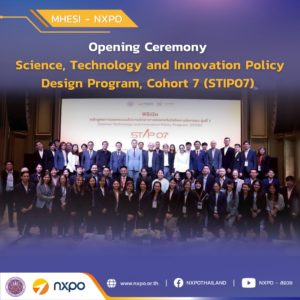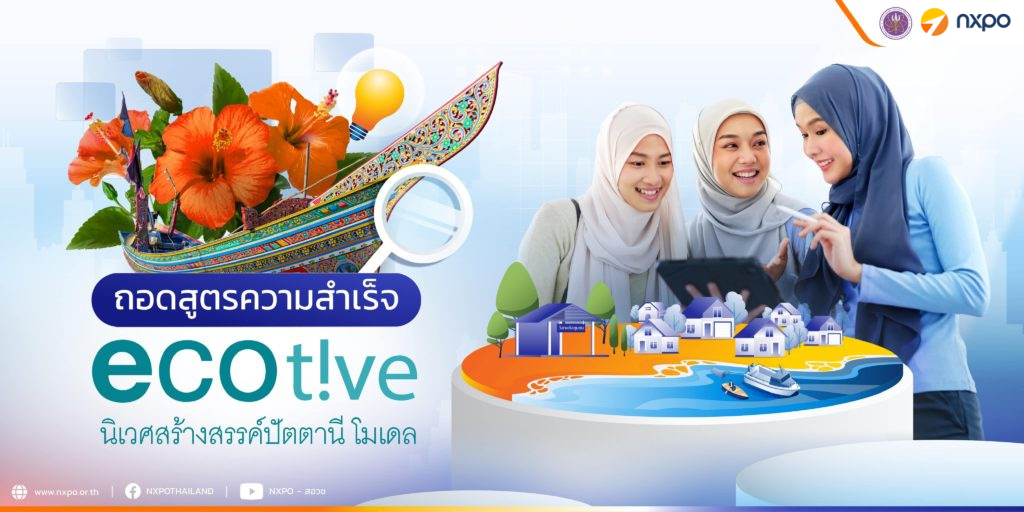
Grassroots economic development and poverty eradication have been key focus areas for NXPO over the past five years. The strategy aims to empower universities to mentor communities, fostering innovation capacity for local enterprises. An entrepreneurial ecosystem is established through a network of universities, government agencies, companies, and financial institutions to empower local entrepreneurs to use technology and innovation to develop products and services, thereby building a robust and sustainable local economy.
To implement this strategy, NXPO and Prince of Songkla University Pattani Campus jointly established Ecotive, an initiative aimed at cultivating an entrepreneurial ecosystem in Pattani province in 2022. The project focuses on policy development and experimentation, designing mechanisms for area-based and grassroots economic development. The project strengthens the innovation capacity of local enterprises and fosters an ecosystem to support financial access, skill improvement, and marketing for local enterprises through a collaborative network of experts, community leaders, youth, and stakeholders. The goal is to inspire creativity and innovation, using local resources to create products and services.
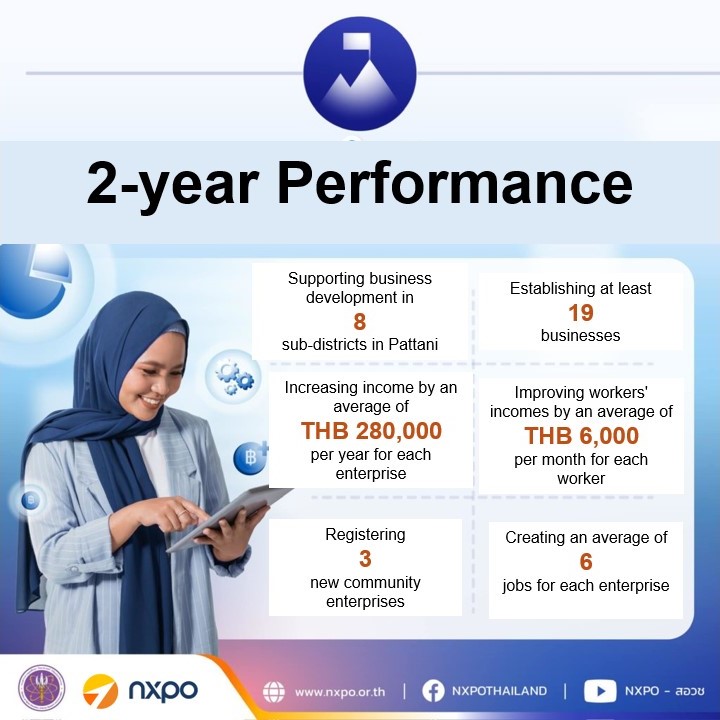
Considerable progress has been made over the past two years, including:
- Supporting business development in eight sub-districts in Pattani: Bana, Barahom, Sadawa, Laem Pho, Pho Ming, Piya Mumang, Tabing, and Taluban.
- Establishing at least 19 businesses, including Malay massage, Saiburi River cruise, traditional Islamic clothing, bakery, banana processing, coconut shell charcoal production, and dried shrimp processing.
- Increasing income for participating enterprises by an average of THB 280,000 per year for each enterprise.
- Creating an average of 6 jobs for each enterprise.
- Improving workers’ incomes by an average of THB 6,000 per month for each worker.
- Registering 3 new community enterprises.
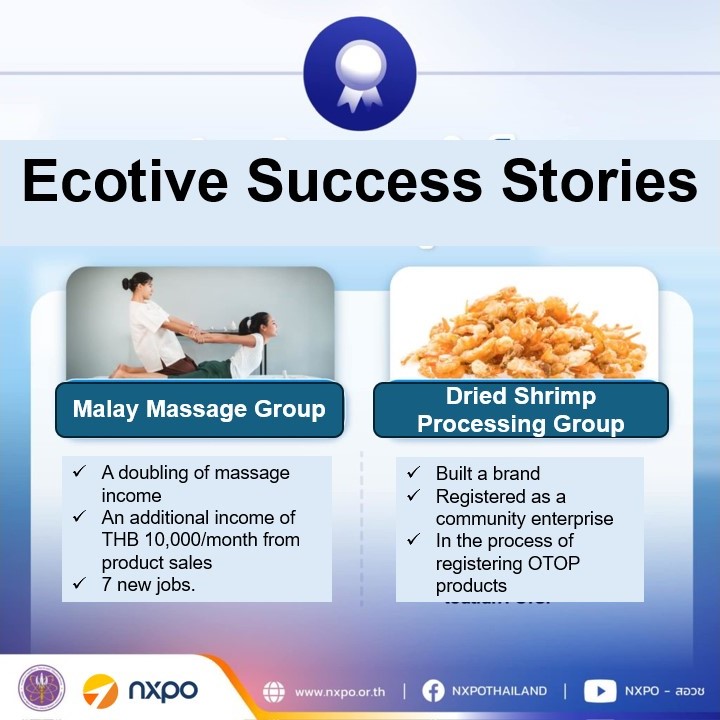
The following are two success cases from Ecotive.
Malay Massage Group: Before joining Ecotive, masseuses earned an uncertain income from house calls, averaging THB 100/hour. After training and developing a business plan, they established a massage parlor, offering complete services such as spa treatment, herbal therapies, and selling products such as portable home spa units and herbal products. This led to a doubling of massage income, an additional income of THB 10,000/month from product sales, and seven new jobs.
Dried Shrimp Processing Group: Prior to Ecotive, the group sold dried shrimp to middlemen, earning THB 12,000 /month. After joining the project, they created their own brand, improved manufacturing hygiene with support from the Provincial Energy Office and registered as a community enterprise. They are now working towards registering OTOP (One Tambon One Product) products, enabling them to access more support programs.
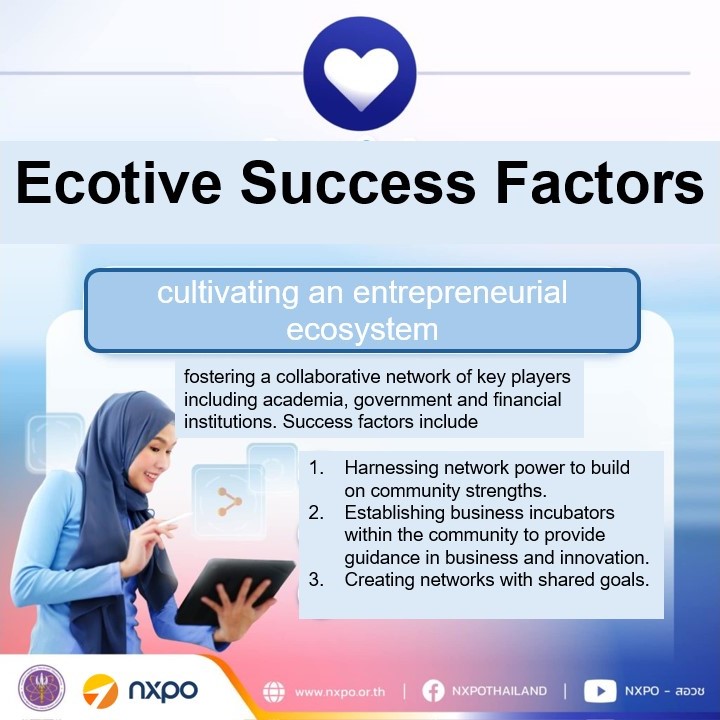
Ecotive can serve as a model for other districts and provinces. The key is to cultivate an entrepreneurial ecosystem that fosters a collaborative network of key players including academia, government and financial institutions. Success factors include:
- Harnessing network power to build on community strengths.
- Establishing business incubators within the community to provide guidance in business and innovation.
- Creating networks with shared goals.
Based on the success of this project, NXPO plans to propose to agencies under the Ministry of Higher Education, Science, Research, and Innovation (MHESI) to allocate funds focusing on an account-based approach and create an entrepreneurial ecosystem to empower local enterprises.


